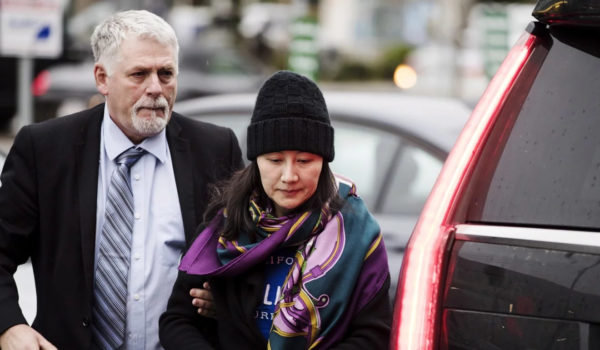On 1 December, the “economic cold war” between China’s Xi Jinping and America’s president Trump took two important steps, but in opposite directions
Dikang, chinaworker.info
A very fuzzy truce, devoid of specifics, was declared by the two leaders at the G20 summit in Argentina. Both sides agreed to “pause” their trade war for 90 days, freezing tariffs (a tax on imports) at current levels. If no wider deal on the underlying issues can be reached by 2 March, the trade war, with threats by Trump to increase his anti-China tariffs from 10 to 25 percent, will resume.
The truce shows that economic pressures have increased on both sides, with the economic outlook darkening in both countries and globally, although this is no guarantee of a permanent deal. As that conflict was partially defused, however, a new and potentially more serious front opened with the arrest in Canada of Huawei’s Meng Wanzhou.
Meng is both Chief Financial Officer of Huawei, China’s biggest smartphone manufacturer, and the daughter of its founder, Ren Zhengfei. She has been released on bail pending legal action by US authorities to get her extradited to face charges that she and Huawei have violated US sanctions against Iran.

Battle over 5G
The Meng affair could signal an escalation of the Trump administration’s “technology war” against China even as a partial roll back or ceasefire on tariffs becomes a possibility. Huawei is a key company in China’s push to catch up and even overtake the US and Western economies in technology. The company is already the target of a campaign by Western governments to exclude it from their plans for 5G (fifth generation mobile communications) – a field in which Huawei, and China, are already ahead of Western countries.
5G represents a more significant technological advance than its predecessors, such as the current 4G standard. It could have big implications for everything from transportation systems to factories and hospitals. It will also have important military implications, another reason why Trump and other Western leaders want to take a harder line against Huawei and other Chinese tech companies.
Read more ➳ US-China trade war – can Xi and Trump back away from conflict?
The US has previously taken action by banning trade and investments with Chinese tech companies, famously against ZTE last April, which brought the company to the brink of collapse. Huawei is equally dependent on the US tech sector for its main components – of its 92 core suppliers, 33 are US companies. Whatever happens in the case of Meng, it seems likely the “tech war” between Washington and Beijing is set to escalate. This conflict is not just about economic interests and profits, vital as these are, but about strategic interests – to decide which superpower gets to dictate to the rest of the world.
Read more ➳ US-China trade war: A long conflict?




